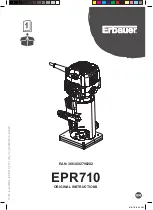
DRA-2 UNIVERSAL COMMUNICATION NODE
74/158
USER GUIDE - Rev.5 (January 2018)
o
Media type:
Identifies the media type associated with the interface. Valid
values
are:
broadcast
,
non-broadcast
,
point-to-multipoint
and
point-to-point
.
o
Priority:
Identifies the media type associated with the interface. Valid
values are:
broadcast
,
non-broadcast
,
point-to-multipoint
and
point-to-
point
.
o
Authentication:
This parameter controls the use of the MD5
authentication, on the interface, for the protocol messages.
o
KeyID:
Parameter that identifies the secret key used to create the
MD5
Digest
(next parameter). The field is part of the protocol and should be
consistent in all routers operating in the same link. The accepted value
range is between 1 and 255.
o
MD5 Digest:
Key used to generate the MD5 hash that is used as
authentication. Its value is linked to the
KeyID
parameter. The maximum
lenght is 16 characters.
•
Virtual links:
It offers the possibility of creating virtual links in order that routers
that do not have interfaces in the backbone (area 0.0.0.0) can have connectivity.
The
Area
parameter indicates in which of the equipment access areas the virtual
connection will be created. The equipment identifier in which the virtual connection
will be carried out is configured in
Remote router Id
. By means of an option it is
possible to enable the use of MD5 authentication for the said connection. The
Auth
Key
parameter is a numeric value that must be shared by the remote end
(according to protocol standard). The last parameter,
MD5 Digest,
sets the
alphanumeric key to generate the MD5 hash. The maximum length is 16
characters.
•
Area configuration:
This parameter sets a behaviour that be alternative to the
standard, as detailed in the protocol specification. The types are
stub
and
stub_no_summary
(also known as Not So Stuby Area or NSSA). The area identifier
must be specified in
Area
as well as the desired topology.
•
Area ranges:
This parameter sets rules for the intra-area route processing when
the routes are announced in other areas (protocol type 3 messages). The
parameters are:
















































